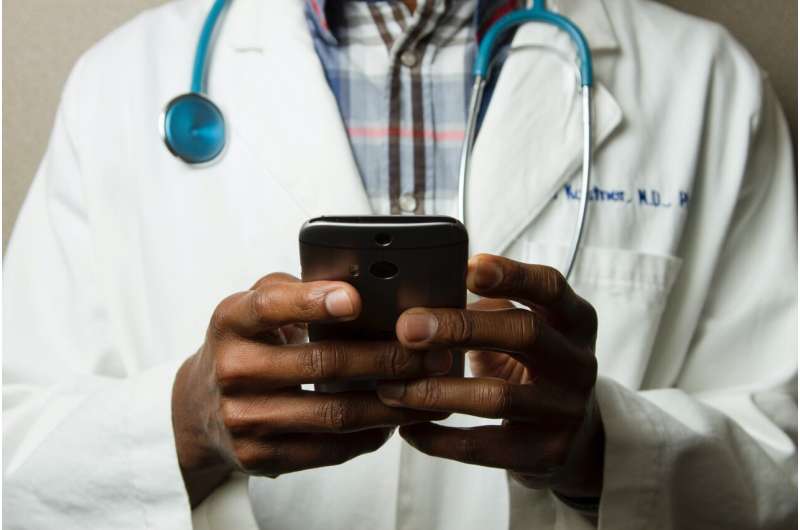Credit: Unsplash/CC0 Public Domain
At the beginning of the COVID-19 pandemic, community health clinics saw a significant drop in patient visits. Important screenings like those for the hepatitis B virus (HBV) were getting missed, which was a setback for a local program called END B to end the transmission of HBV—a leading risk factor for liver cancer.
HBV is one of the greatest racial health disparities in the country. There are an estimated 1 in 12 Asian Americans in the U.S. infected with HBV in comparison to 1 in 1,000 non-Hispanic whites.
"Our data show that community health centers harbor a high prevalence of undiagnosed HBV. By comparison, the national average of hepatitis B prevalence is only 0.35%. We need to continually create solutions to reach those who have never been tested," said UC Davis Health hepatologist Eric Chak, who is hepatology director of END B.
The END B program was started in 2019 thanks to a $1.5 million grant from the U.S. Department of Health and Human Services Office of Minority Health. The federal grant was used to create a unique partnership with UC Davis and the Health and Life Organization (HALO). HALO is the largest regional health care provider to Asian Americans. In 2020, it teamed up with UC Davis researchers to determine whether electronic tools could help to keep the END B program from losing ground during the pandemic.
Findings were summarized in the article "Enhancing Electronic Health Systems to End Transmission of Chronic Hepatitis B during COVID-19: A Collaborative Approach," published in the June issue of Clinical Liver Disease.
The article describes how using electronic health records proactively during the pandemic, together with bilingual/bicultural outreach, increased HBV screenings of underserved populations.
"By using an electronic health system-based registry, we were able to diagnose a high number of high-risk patients compared to a hit-or-miss system," said Moon Chen Jr., director for the Office of Community Outreach and Engagement at the UC Davis Comprehensive Cancer Center.
One way to eliminate HBV is to prevent transmission from a mother to her baby, which is highly effective if HBV is detected prenatally. Early screening for HBV mitigates the risk for perinatal HBV transmission and allows for preventative treatment. For this reason, HALO focuses on screening and treating pregnant mothers.
New electronic system
In the first month of the pandemic, the HALO clinics saw a 70% decrease in patient visits and there were no telehealth services in place. An electronic health record-based registry of high-risk patients was established, and HBV tests were ordered without patients coming into the clinics.
A bilingual case navigator followed each patient found to be HBV positive and standard HBV treatment was provided. Mothers-to-be with high HBV viral loads were started on tenofovir 300 mg/day to prevent transmission to their newborns, who were also vaccinated against HBV at birth.
As a result of early adoption of telehealth service at HALO, completion of HBV testing among local Asian American pregnant women has remained only slightly below pre-pandemic levels. The testing of high-risk patients (non-pregnant Asian Americans) actually led to a large increase in the number of tests completed during the pandemic and a rise in HBV cases detected.
"It is our expectation that END B could become a model for fighting HBV nationally, particularly through eliminating perinatal transmission of HBV and thus spare future generations from HBV-linked cancer," said Chen.
More information: Eric Chak et al, Enhancing Electronic Health Systems to End Transmission of Chronic Hepatitis B During COVID‐19: A Collaborative Approach, Clinical Liver Disease (2021). DOI: 10.1002/cld.1144
Provided by UC Davis
























